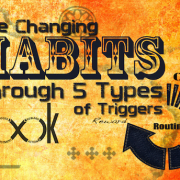Want Less Drama in Life? Stop People Pleasing!
One of the things that so many people complain about in their life is the amount of drama that is in it. And one of the biggest problems that causes this drama between us and other people is an inner feeling that we have to make everyone like us; we need to be the solution to everyone’s problems. We need to be there for people so they continue to be our friend… or just nice to us.
At first, we like this feeling with people. We all like to feel that we’re important. We like to feel that the more we help this person, the more they’ll see us as a reliable and trustworthy friend and/or more.
However, as time goes on, we might start feeling that they’re taking advantage of us. That if we don’t do what they ask, they’ll be upset and we won’t hear the end of it.
“It’s their fault that they don’t understand me! If they understood my position, they’d stop asking so much from me!” you say?
Not necessarily. As adults, being stretched thin is totally our call. More than likely, we were the one’s who said yes to helping them in the first place. They asked and we agreed.
We all have demands in life that need our attention. On one hand, some of us are just better at asking for help from others. On the other, some of us are more inclined to be the helper.
If you are that helper type who wants less drama in your life, maybe ask yourself how you can get out of your situation.
More importantly, “How do we stop people pleasing?”.
First, you need to start expressing your concerns and opinions around others by communicating more clearly.
And second, by working on yourself some so it doesn’t happen as much as in the future.
Start Being Ourselves Around Others and Communicating More Clearly
If you find out that you’re a people pleaser, you might be wondering what you can do to stop it right away. Well, that might be a little hard depending on your situation. I mean, you still more than likely want to remain friends with these people – you just want to change your relationship with them a little. So let’s look at some of the things you can do right away that will help give you some space and time to figure out the deeper issues.
Stalling – Not exactly the best tactic as it’s not very clear per se, but I have to put it in here if you’re looking for some immediate help. You’ve probably already played dumb or said you have too much going on to deal with their request right now (…however they can call you later). Simply remember that this tactic only gets you so far and that as soon as you say yes, you’re stuck.
Ask for What You Want – If you’re with a group of people, just say what you want to do. You might not change anyone’s mind, but it might surprise you that some of them might have wanted to do the same thing… they were just too afraid to say anything.
Compromise – If you’re with one other person, simply go for the trade. It might be as simple as saying, “If we do this, I’d like to to this.” Don’t try and force your decision on them. Remember, you’re trying to eliminate stress here. Do it for both parties.
Set a Time Limit – Another way of getting out of doing something you don’t want to is actually agreeing, but saying you can only do it for so long. This is a form of a compromise, but instead you’re giving yourself room to part ways.
Learn How to Say No (Don’t Give Excuses) – Sometimes, none of the other tactics are going to work. Perhaps you don’t like a co-worker’s friends. Or you get stressed at certain events. You simply don’t want to do whatever is being asking of you. When this happens, you’re just going to have to grin and bare the response. Just remember to be POLITE in your response. A simple “no, thanks” typically goes far.
Do Something For Yourself – Many of us agree to do what others are doing because we don’t want to be left behind. However, it’s totally ok for you to do things on your own if you are left behind. In fact, you should learn how to embrace it! None of your friends want to go to the other movie you suggested? Check it out on your own time! Let other’s opinions be things to consider in your decision – just not the final factor.
Whichever of these that you choose, remember that in the end, no one is a mind reader. So remember that they’re not used to you actually voicing an opinion. Also, don’t expect them to suddenly start waiting for your response.
The Harder but More Rewarding Part – Working on Ourselves
Until you examine who you are and adjust, you’re still going to attract the same kind of people in your life. This is true of not only people who want to take advantage of you, but all negative people. So let’s start digging deep and start changing some things around a little bit.
Examine Your Fears – Most of the time when people are people pleasers it’s because we are afraid of the outcome of not pleasing others. In a worse case scenario, if we start expressing our needs, will others accept them? If the answer to that is no, ask yourself if they’re really worth keeping around. Are they a lifter or a weight in your life?
Recognize Your Successes (Keep a Journal!) – Another reason we are people pleasers is because we feel that going with the flow of others adds value to us. You’re totally aware of their success, but of they of yours? Remember times that you have accomplished things. Even if you don’t think they were a big deal. To someone in the world, they are. Did you learn how to finally use roller blades? Good. Got your first meaningful job? Great! Celebrate your wins no matter the size and keep a record of them so you can look back in the future if needed.
Examine Boundaries (and Create New Ones) – Treat others the way you’d like to be treated. Do you tolerate the intolerable? Or do you strive for excellence and set the bar up there for others as well? Learn how to identify and label unacceptable behavior for others. When they do it ask yourself why they’re even in your social group.
Stop Basing Your Own Worth By How Much You Do For Others – I saw a post on Facebook not too long ago that said that if the world was full of love that worth would not exist. Here’s the thing: if you hang out with people who do appreciate and respect you, you’re going to find out that you have all the worthiness you need to be successful in life. Stop
Consider the Source (Are You Being Manipulated?) – Sometimes people are just manipulators and you’ll have to learn how to sniff them out. A classic line that manipulators use is “Oh, you’re so great at XYZ! Would you help me with mine?” That doesn’t sound so bad, but on top of that they’ll try and coax you into doing something you hadn’t planned on and try to tell you what your availability AND time frame is to said job. They make the decision for you.
Run from these types of people.
Practice Successive Approximation (Create an A-Z plan and list) – Sometimes you’ll have people in your life that just can’t take the hint. You’ve tried several of the above tactics and they’re still being persistent in trying to get your attention and/or telling you how you can help them.
In this case, you’ll need a plan to get from where you currently are with this person to where you want them in your life. If they’re actions are predictable, this will be much easier to carry out.
An example might be noisy neighbors. Step 1: Just greet them. Step 2: Next time you see them, mention how noisy the neighborhood gets. Step 3: If they didn’t get the hint yet, just go knock on their door and politely ask for them to quiet it down.
Consider who you want to give your time to. – Ultimately your choice is yours to make. Do you want to spend time with someone who constantly makes you feel bad or with those who will respect and care about you?
Don’t be Scared of the Fallout – If someone in your life isn’t happy that you’re setting boundaries and starting to care about your own time and what you invest it in, perhaps you don’t need that person around. I know this is the hard part, but it isn’t your job to worry about what others think of you.
Realize You Can’t Be Everything to Everyone – Frankly, you are who you are. You have your strengths and weaknesses, as does everyone else in the world. Don’t expect to be Superman. Just realize that no one is perfect and you shouldn’t expect for yourself to be. When you have to say no, it’s ok. Just remember that you’re saving yourself in the long run by not rescuing everyone.
You only have so much time on Earth. Make a Stand. Make Your Time Your Time.
Homework
The next time you’re feeling that angry feeling towards someone “controlling” you, think about who they are. If they’re not a boss, client, or family member ask yourself if you need them in your life. Even if they are a supervisor, client, or family member, ask yourself if this constant frustration is worth your long term time and energy. If it isn’t, start looking for a new job or different clients. If it’s with a family member, figure out ways of limiting your time with them. Whatever is in your life right this instant isn’t what you’ve always had and always will have. Change is inevitable. Just become the catalyst and change it yourself.








